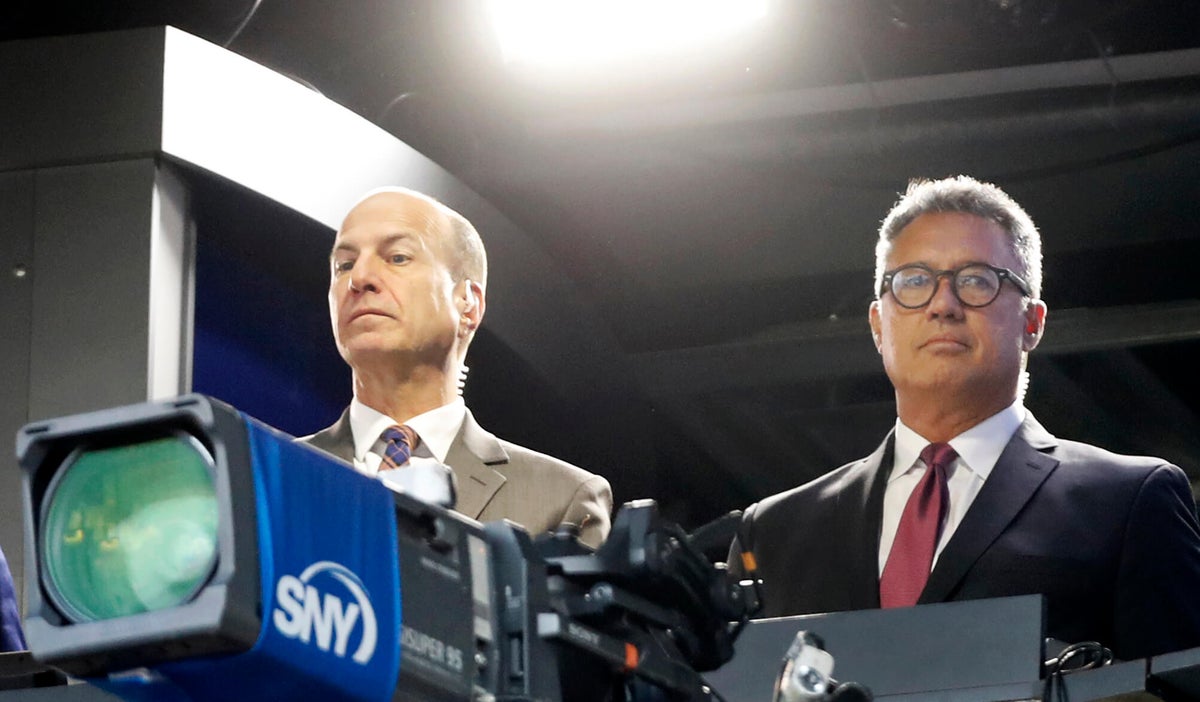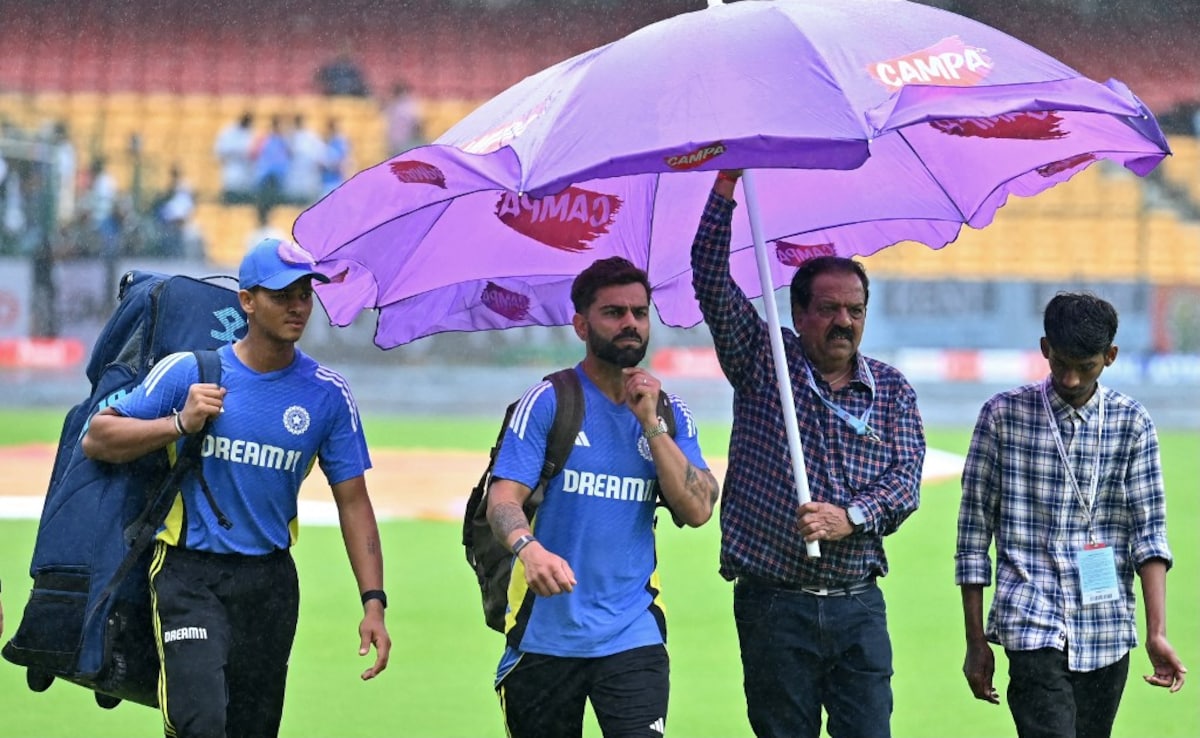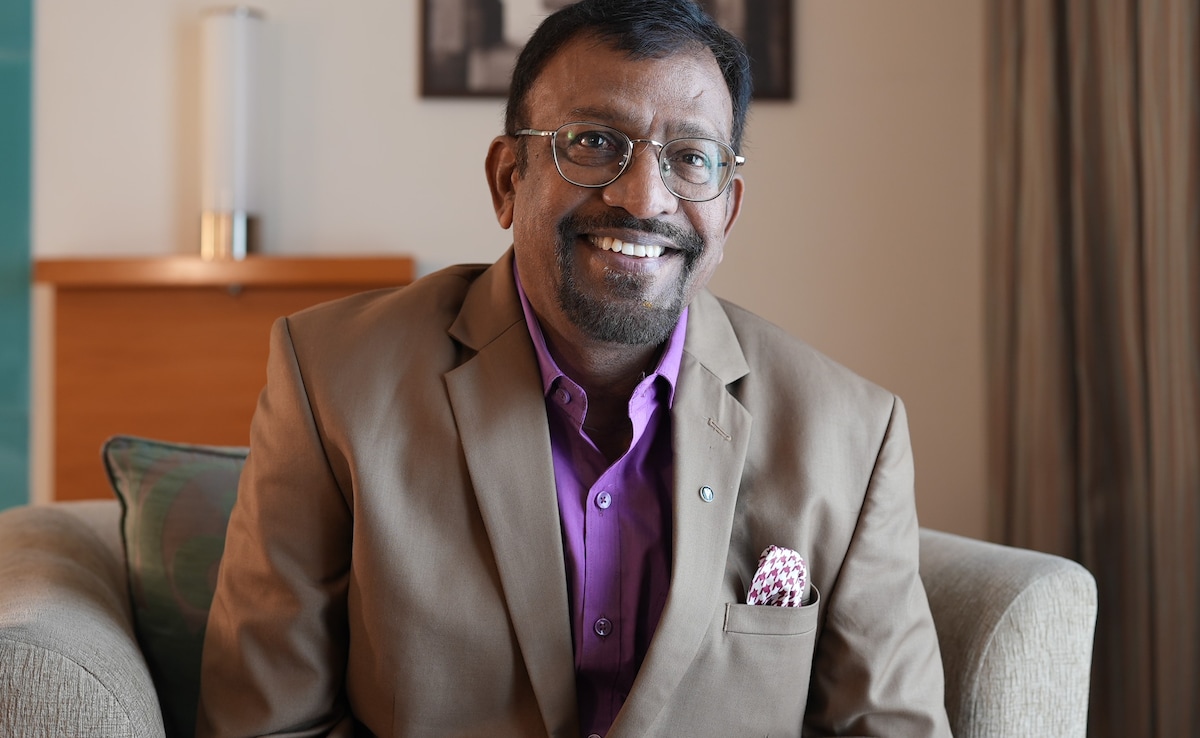It was the ninth inning of Mets-Brewers Game 3, a winner-take-all matchup to advance to the National League Division Series. The Mets were down two runs, had two on, and slugger Pete Alonso was at the plate.
It was a moment meant for Gary Cohen — the legendary 36-year voice of the New York Mets. But he wasn’t inside the raucous American Family Field confines calling the game, because he couldn’t be. Instead, he was in New York City, at the SNY studios, preparing for the post-game show.
The 66-year-old’s whole life has been dedicated to this team. The Queens native grew up going to games, and has an encyclopedic knowledge of its history. But as that game unfolded, he said that he didn’t allow himself to think of what he was missing, because he still had a job to do. Even if it wasn’t the one he wanted in that moment.
“It’s kind of a big deal,” Cohen said of the Mets’ magical run. “So no, it hasn’t gotten any easier. It still stinks just as much as it did the first time.”
What happened next will forever be seared in the minds of even the most casual of Mets supporters: A season-saving three-run shot that crept over the right-field wall. Alonso blew a kiss as he rounded first. He closed his eyes and screamed as he rounded third. He was mobbed by his teammates after crossing home plate.
Cohen wasn’t on the call because ESPN has the rights to the Wild Card Series. TBS and FOX have the rights to rounds that come after. Cohen called nearly every regular season game this year. Everything from their dreary 0-5 start, to Grimace’s first pitch and the win streak that followed, to the clincher on the regular season’s final day.
But instead of joining the team, staff and radio announcers on a flight to Milwaukee, Cohen’s season in the booth came to a close two weeks ago in Atlanta.
Across baseball, the local voices who fans get to know and (usually) love over 162 regular season games are replaced by national broadcasters for the playoffs. While there are sensible logistical, contractual and financial reasons why local TV broadcasters are sidelined for the postseason, that fact doesn’t erase the pain associated with missing the call — both for the announcers themselves and the fan bases that feel cut off.
“It’s kind of like taking a transatlantic voyage on a ship, and then getting thrown overboard a mile from shore,” Cohen said with an unhappy chuckle. “It’s weird.”
Unlike their television counterparts, radio broadcasters stay with their local teams through the postseason. So in the Alonso moment, Mets radio broadcaster Howie Rose was able to give it the call of his life. “He did it,” shrieked Rose — seemingly out-of-his mind excited, yet also fully keyed in on describing the scene before him.
Cohen, meanwhile, could only watch. He gathered his thoughts and prepared to present them on SNY after the game. Cohen was happy for Rose and is complimentary of the national announcers who are doing the games in his stead. He’s fully aware he accepted a job that prevents him from calling these moments. He also didn’t pretend to hide his own disappointment.
“I’m sure they’re having a blast doing that,” he said. “I can only sit here envious of the fun they have to be having.”
Taking a job as a television broadcaster comes with caché, money and name recognition. Just as there are only 30 managerial jobs, 30 GMs and 30 starting shortstops, only one person can be a primary television play-by-play voice.
But it also comes with one innate flaw, an understanding for everyone taking this coveted position. When the regular season ends, your duty is ceded to someone else.
“Imagine being a player and spending the entire season on the roster, and then being told you won’t be on the postseason roster,” said one current TV play-by-play broadcaster who wished to remain anonymous. “That’s how I feel.”
Atlanta’s Austin Riley hit a massive home run in the NLDS last season to complete a four-run comeback against the Phillies. And Braves broadcaster Brandon Gaudin was in attendance — as a fan.
He jumped up and down. The longtime Braves supporter was able to celebrate that moment as he would have as a kid. Something he recognized was special.
“Then the adrenaline wears off and I wonder, ‘What would I have said? What would my call have been in that moment?’” Gaudin said. “I remember the deafening roar and thinking how cool it would have been to quickly punch that call, and then sit back and let the chills go down your body as the crowd takes over.
“Did I think about that a couple moments after the home run happened? I did. I wondered what it would have been like.”

Brandon Gaudin, right, gives up his Braves duties when October arrives. (Doral Chenoweth / The Columbus Dispatch)
Before Len Kasper took over in the Chicago White Sox radio booth, he spent 16 years as the Cubs’ television voice. In his last six seasons, the Cubs went to the playoffs five times — most notably breaking a 108-year World Series championship drought in 2016.
Kasper took the incredibly rare step of leaving television for radio, in part, because he did not want to experience that feeling anymore. When he left, he explained it to then-manager David Ross by asking him how he’d have felt to be left off the 2016 playoff roster.
“You want to feel like you’re a part of it,” Kasper said. “Calling the games when they count the most. Radio announcers get the call all the way until the end.
“I think there’s big value in that, and that’s one of the reasons I made the switch.”
Sitting in between his two radio co-hosts, Michael Kay had a gripe. Kay calls Yankees games on YES. And he was assigned to call the Astros-Tigers Wild Card Series on ESPN.
On his radio show the day after that series ended, he lamented that he was the game’s only television voice.
“You don’t think Tigers fans want to hear Jason Benetti? And they don’t want to hear Todd Kalas on the Astros side,” Kay said. “C’mon. It’s so easy. Just have secondary audio.”
“It’s not the same as listening to the voices of those teams,” said Pirates broadcaster Greg Brown. “I don’t know how I would have felt — especially for a team that hasn’t gotten there very often — not to be able to participate. For me, it would have left quite a void in my career not to continue into the postseason.”
While all regular season NFL games are televised nationally, baseball is far more of a local enterprise than most of the other major sports. The game is rarely a topic of conversation on national drive-time radio. But on a day-to-day basis, baseball teams matter in their markets.
When local broadcasters are usurped in the postseason, it can create a dynamic where fans feel short-changed. That frustration can come in the form of complaints about bias, or just a general dissatisfaction with the overall product.
“Your connection with the broadcasters is stronger than any other sport because there’s 162,” said Joe Davis, the Dodgers broadcaster who also calls the playoffs, including the World Series, on FOX. “Just about all of them you’re spending with the two guys that are with the team.”
“And then, who are these people who show up and call the biggest games of the year? I totally get it. You’re never going to be the most popular guy in the room in that role.”
And fans are not shy about passing those comments along.
“Social media has given fans a digital suggestion box that holds all of us accountable, locally and nationally, which demands our focus on improving the product,” acknowledged Brian Anderson, who calls Brewers games on Bally Sports and is the voice of TBS in the postseason.

Brian Anderson is on the call for TBS in the playoffs. (Kirby Lee / USA Today)
An average Mets game on SNY draws a little more than 250,000 viewers, according to a 2022 report by the Sports Business Journal. MLB announced broadcasts averaged 3.6 million viewers during the Division Series. Those impacted by the lack of a local telecast are a fraction of the overall audience. That doesn’t mean their complaints are invalid, or that they fall on deaf ears once October rolls around.
“The season is so darn long, I know what it’s like when the Cubs fans just want to hear their guys,” said Jon Sciambi, who is the Cubs’ television broadcaster, and also called Mets-Brewers on ESPN. “They’re used to it, and it just feels weird.”
That’s the emotional side of the equation. And then there’s the pragmatic side of it too, which Sciambi was quick to note. The baseball postseason isn’t solely meant for the local audience. Even in moments like Alonso’s home run, it’s the fan bases that want someone as excited as them, or to reassure them in the season’s final moments.
“There are plenty of people watching that game that are not Mets fans, and not Brewers fans,” he said. “There’s an aspect of it, where they’re just watching it.
“So as loud as it gets, I think that they’re fine and used to all of the national guys that have done it.”
When The Athletic requested an interview from MLB for this story, a spokesman said that its broadcast partners would be a better source of information. After all, they determine who broadcasts the games.
When The Athletic reached out to one of the league’s broadcast partners, its spokesman said that MLB would be better to answer questions on this topic. After all, they set the parameters for television coverage of their sport with all their partners.
In the end, it is something of a joint decision. Preventing local telecasts from airing alongside a national broadcast is part of their contractual agreement, a league source said. And it’s one that’s financially beneficial to both sides.
FOX pays MLB a reported $729 million per year. Turner pays $470 million, and ESPN pays $550 million. None of these networks agree to that hefty price with the intent to share eyeballs during the sport’s most consequential month.
It wasn’t always like this, though. In the 1970s, local rights-holders used to air the championship series. The first round of the NBA and NHL playoffs are broadcast nationally and locally to this day. Some national baseball broadcasters would like to see that option.
“I liked that model,” said Anderson, who noted that he tries to incorporate highlights of local calls into their national telecast. “I’ve done postseason baseball for TBS for 17 years now and I always feel terrible that the voices of the fans of teams involved are gone.
“No national announcer, me included, will ever be as knowledgeable and tuned into the culture of a team as the local announcer. To call your team in the biggest moments is something we all desire,” he said.
Anderson cited Turner’s “TeamStream” model that is used during the NCAA Men’s Basketball Tournament, as an option “worth pursuing.” That would allow local crews to combine for an “AltCast” where local fans could hear their broadcaster.
“That would be fantastic if somehow that came to pass,” Cohen said.
But as Anderson, Cohen and many others have noted, that option sounds easier in theory than it would be to execute in reality.
So, for now, Cohen and many of his counterparts will sit in studios, in the stands, or just in front of their television watching the end of a season they helped bring to this moment.
“You’re a part of the fabric for six months,” Cohen said. “And then all of a sudden, you’re not.”
— The Athletic’s Chad Jennings and Stephen Nesbitt contributed to this report.
(Top photo of Gary Cohen with broadcast partner Ron Darling: Kathy Willens / Associated Press)











